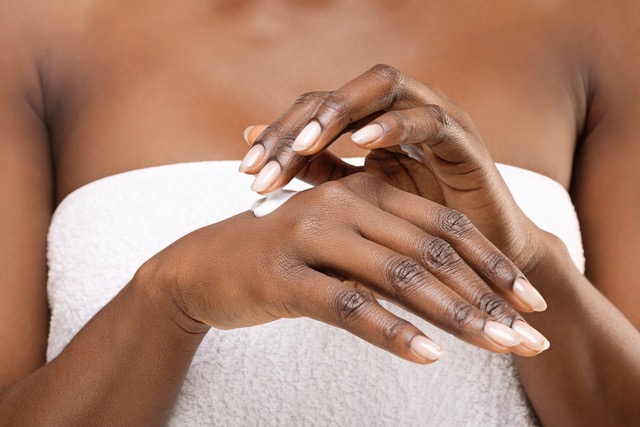You may have come across ceramides in some of your skincare items while reading the ingredient list on the back of product bottles or you have a baseline awareness of skincare ingredients and know it’s good for the skin. The question is, what exactly are ceramides and what is their role in our skin?
In essence, your skin will appear firmer, brighter and smoother if your ceramide levels are at its optimum – so what does this mean? Ceramides help the skin’s outermost layer stay strong. They fortify its defences so that you can enjoy things like moisture retention leading to a more buoyant, firm, smooth, bright and clear complexion. Think of them as your skin’s warriors.
Let’s dive a bit deeper…
Ceramides are lipid molecules that play a role in brain and nervous system development but are also important in proper structure and barrier functioning of the skin, such as preventing moisture loss and protecting against environmental damage. Scientifically, ceramides are fatty acids which are produced naturally by your body. Your skin has abundant ceramides; but this does decline with age. These fatty acids make up about 50 percent of the outermost layer of your skin (along with natural oils, amino acids, and cholesterol). This layer thins over time, leading to a greater need for topical, barrier-bolstering products. These products can prevent ongoing wear and help rebuild your ceramide levels.
Tumi Lehutso from Fundamentals Skincare explained that when ceramide levels decline, “it can lead to drier, more sensitive skin or other issues. However, the best way to combat this is by using skin care products that contain ceramides to replenish your levels. Some research suggests that these may help improve skin health.”
Why you need products with ceramide as a key ingredient
Now more than ever in South Africa, most people will suffer with some sort of dry skin. When the skin’s barrier becomes compromised, it can lead to trans epidermal water loss (TEWL). This water loss refers to the amount of water that passes through the epidermis and evaporates on the skin’s surface. As a result of TEWL, the skin may then become dry and inflamed with an increased risk of developing inflammatory conditions such as psoriasis, acne, and eczema.
Scientific research reveals that ceramide creams can significantly decrease TEWL, which, in turn, boosts skin hydration and improves barrier function. Increasing hydration also helps soften and smoothen the skin, which improves its overall comfort and appearance.
Ceramides can assist in:
~ Rejuvenating ageing skin. Hydrated skin can help minimise the appearance of fine lines and wrinkles, which are often more visible when the skin is dry and;
~ Protect the skin against UV damage. A 2021 study found that using ceramide-containing moisturisers and sunscreens can protect the skin against UV damage to the skin barrier. In addition, the products seemed to improve skin hydration, help maintain normal cell turnover, and combat redness and hyperpigmentation.
“Typically, ceramides are safe. They are not likely to cause any side effects. Before using, people should perform a patch test on a small area of skin to check if they are sensitive to any ingredient in the product. Ceramides can be found in moisturisers like the Fundamentals Skincare Ceramide Cream as well as in toners, serums and cleansers and in certain foods such as wheat, rice, corn, sweet potato and soybean,” concluded Lehutso.





